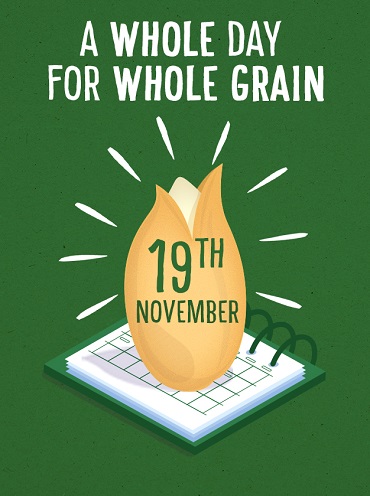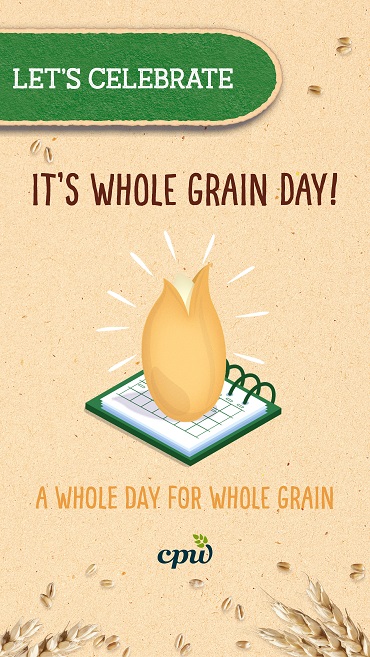Cereal Partners Worldwide (CPW), a joint venture between Nestlé and General Mills, is calling on governments to recognise the role and contribution of whole grain in a healthy, sustainable food system and make it a priority in their food and nutrition policies.

 Globally, 1 in 5 deaths in 2017 were associated with a poor diet[i]. Eighty-eight percent of countries are encumbered by malnutrition and diet-related non-communicable diseases[ii]. Despite the numerous health benefits associated with whole grain, research shows consumption of whole grain remains concerningly low. Globally, it is estimated that people are eating less than a quarter of recommended intake of whole grain per day[iii].
Globally, 1 in 5 deaths in 2017 were associated with a poor diet[i]. Eighty-eight percent of countries are encumbered by malnutrition and diet-related non-communicable diseases[ii]. Despite the numerous health benefits associated with whole grain, research shows consumption of whole grain remains concerningly low. Globally, it is estimated that people are eating less than a quarter of recommended intake of whole grain per day[iii].
The company’s call to governments reflects CPW’s purpose to Make Breakfast Better and aligns with its ongoing commitment to improving the nutritional profile of its cereals. At CP UK specifically,100% of cereals carrying the green banner are made with a minimum 8g of whole grain per serving. During 2019, CPUK used 315 million more (16g) servings – 5,042 tonnes – of whole grains in its cereals compared to 2003.
Gharry Eccles, Vice President of CPUK & Oceania said, “As a business, we have long believed and championed the power of whole grains, and we want to make sure their benefits are understood by everyone, especially today, on International Whole Grain Day. But for us, whole grain is a priority not just for today, but all year round and we have worked hard to promote and increase consumption. This includes our partnership with the British Nutrition Foundation’s ‘Healthy Eating Week’ 2020, along with other education and marketing campaigns to help drive awareness over the course of the year.
“As part of this, we also make it clear to consumers that our breakfast cereals boldly displaying the green banner contain whole grain as the number one ingredient. We believe that clear front of pack information indicating whole grain content can make a real difference to consumption levels, and we want to support our government in ensuring whole grains become a staple part of diets in the UK.”
Professor Louise Dye, Professor of Nutrition and Behaviour, University of Leeds added, “Breakfast is a really good source of whole grain intakes, especially if you eat breakfast cereals. In children in particular it’s an easy, modifiable behaviour.”
CPW is calling for governments and policy makers to consider three measures to help increase consumption of whole grain in their countries.
- Consistency in dietary guidelines with an emphasis on whole grain. Globally, there are over 100 different food-based dietary guidelines. There is little uniformity between countries, even those that share a border. Greater focus on whole grains is needed both in the guidelines and the supporting images.
- Clear front-of-pack labels which recognise the important contribution of whole grain on healthy diets. Front of pack labels have been recommended by the WHO as a tool to help prevent non-communicable diseases by helping consumers identify healthier food productsiv. Currently, whole grain, despite its health benefits, is rarely taken into consideration.
- Education and marketing campaigns on the benefits of whole grain. A whole grain campaign run by the Danish Whole Grain Partnership (DWGP) in collaboration with the Danish government and other health non-profit organisations increased average whole grain intake from 36g to 82g/day between 2008 and 2020. Fifty-three percent of those surveyed actively look for the DWGP whole grain logo when shopping.
Increasing consumption of whole grain has the potential to not only benefit individual daily diets, but to do so in a sustainable way. According to the Whole Grains Council, studies show that whole grain foods save water, provide more food and less waste. Whole grains can also support better land use and healthy soil as rotating crops with whole grains such as barley, oats and rye, in the off season, help protect against soil erosion and also deliver nutrients back to the soil.v
CPW’s support is part of an ongoing campaign around International Whole Grain Day on 19th November 2020.These ideas will be discussed in more detail as part of a global virtual meeting being hosted by the Whole Grain Initiative today (19th November).




Comments are closed.